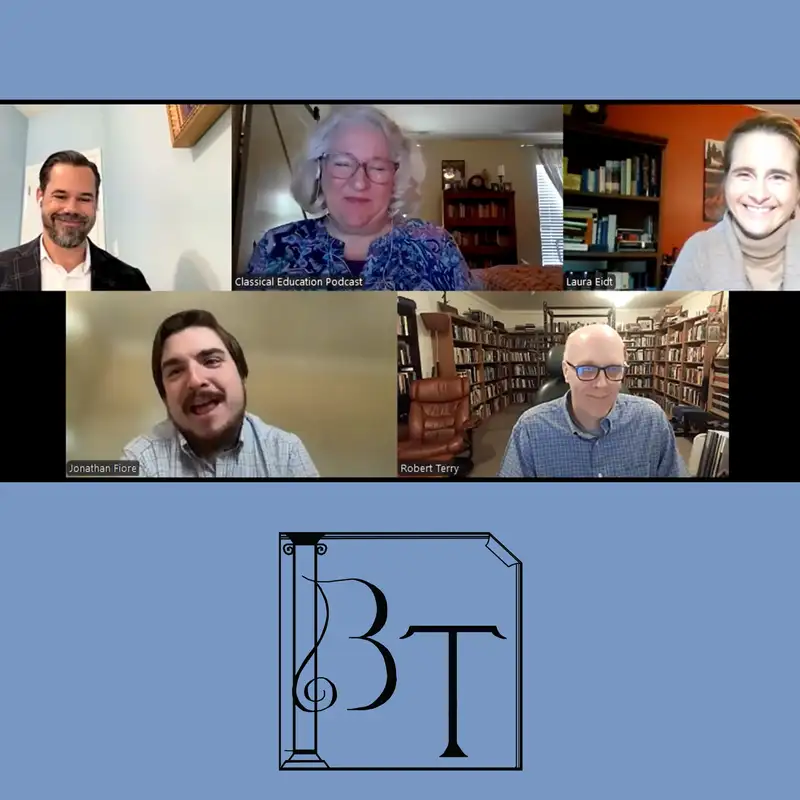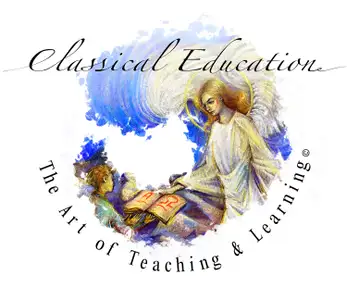Panel Discussion: What Makes a School Classical?
Guests
- Dr. Matthew Post: Founder and Former Director of the Classical Education Graduate program at The University of Dallas; Served with The National Classical Education Symposium, The Institute for Classical Education, and The National Council for Classical Educators; Currently serves as Assistant Dean of Academic Affairs, Honors College at The University of Tulsa
- Dr. Laura Eidt: University of Dallas- Affiliate Assistant Professor of Modern Languages, Humanities Program Director, Director of UD's K-5 Latin Curriculum Latin Through Stories
- Dr. Robert Terry: Over 25 years at a Classical University Model School teaching and serving as curriculum director and faculty development, Masters in Great Books, Doctorate of Theology (ThD in Inkling Studies)
- Jonathan Fiore: Formerly homeschooled, Graduate of Hillsdale, Masters in Classical Education from The University of Dallas, Humanities Teacher at Holy Innocent's Catholic School
Topics Covered
- What are the essential criteria for a school to be considered classical?
- There are 4 touchstones that make up a classical education: Christ-centered, cultivation of wisdom and virtue, appreticeship in the 7 liberal arts, and a focus on the timeless and traditional
- Community and leadership must have an understanding of the tradition for success
- Atmosphere is central to the success -- order and harmony (beauty) is really important
- Are the following things necessary?- Great Books, Socratic Dialogue, integration of subjects, Charlotte Mason, Trivium & Quadrivium, Latin?
- Love and freedom are at the heart of classical education
- Does reading the classics or teaching ancient Greek history automatically define your school as "classical"?
- Are we preparing students to see themselves as part of a community and a country?
- How ought we assess students if education is rooted in love and liberty?-- What does the research tell us about good and bad ways to assess students?
- What are some common roadblock in classical education?
- Memory work should be meaningful rather than rote fact chants
- Seminars
- Formation of teachers and parents is necessary
Resources we Discussed:
- Paradox of Education in a Republic by Eva Brann
- Jefferson's Natural Aristocracy
- Homer's Iliad and Odyssey
What is a book or poem that every classical teacher and board member should read?
- The Liberal Arts Tradition by Clark and Jain
- Plato's Gorgias
- The Awakening of Miss Prim by Natalia Sanmartin Fenollera
- Homer's Iliad (Fagles or Lattimore translation)
- Abolition of Man by C.S. Lewis
- Paradox of Education in a Republic by Eva Brann
________________________________________________________
This podcast is produced by Beautiful Teaching, LLC.
Support this podcast: ★ Support this podcast ★ _________________________________________________________
Credits:
Sound Engineer: Andrew Helsel
Logo Art: Anastasiya CF
Music: Vivaldi's Concerto for 2 Violins in B flat major, RV529 : Lana Trotovsek, violin Sreten Krstic, violin with Chamber Orchestra of Slovenian Philharmonic
© 2024 Beautiful Teaching LLC. All Rights Reserved
This podcast is produced by Beautiful Teaching, LLC.
Support this podcast: ★ Support this podcast ★ _________________________________________________________
Credits:
Sound Engineer: Andrew Helsel
Logo Art: Anastasiya CF
Music: Vivaldi's Concerto for 2 Violins in B flat major, RV529 : Lana Trotovsek, violin Sreten Krstic, violin with Chamber Orchestra of Slovenian Philharmonic
© 2024 Beautiful Teaching LLC. All Rights Reserved

